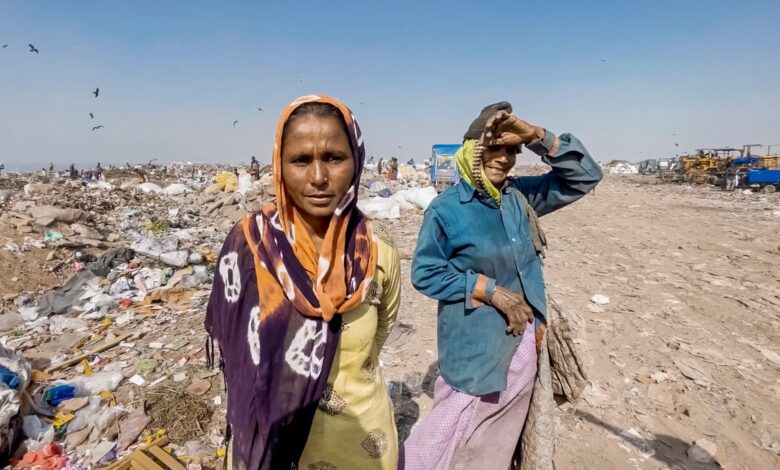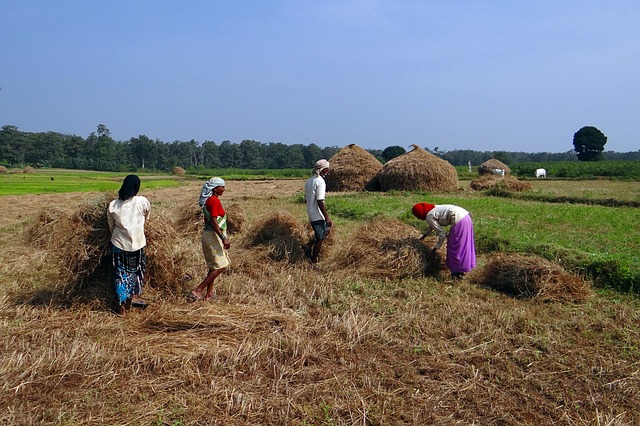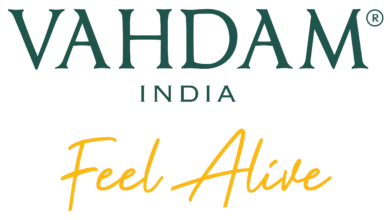How The Extreme Heat Income Insurance Policy Protecting Women Workers

Here’s how a parametric insurance policy is protecting the livelihoods of 21,000 women workers in India during severe weather conditions.
India experienced severe heat waves last year, with temperatures surpassing 49°C (120.2°F) in certain areas, breaking March and April records. The influence of climate change made these heat waves approximately 30 times more probable. In an effort to safeguard themselves, some of the least affluent female workers in India have turned to heat-related insurance as a unique solution.
The Extreme Heat Income Insurance, a parametric insurance policy aimed at helping women in India recuperate lost wages resulting from extreme heat events linked to climate change, has been introduced by the Adrienne Arsht-Rockefeller Foundation Residence Center (Arsht-Rock). This groundbreaking climate resilience tool was developed in collaboration with insurance company Blue Marble and the Self Employed Women’s Association (SEWA), a well-established Indian trade union with a 50-year history. SEWA acts as the group policyholder while ICICI Lombard serves as the local insurer for this initiative, which is the first of its kind.
What is the purpose?
The micro insurance product aims to safeguard the well-being and livelihoods of women in the informal sector in India, comprising 93% of the country’s labor force. These women are particularly vulnerable to the adverse effects of extreme heat, which significantly impact their health, children’s education, and access to food. The consequences of lower wages are evident in reduced food consumption, and these women often find it challenging to afford medical care when they experience symptoms such as dizziness, fever, or cramps due to excessive heat.
The severity of the issue manifests in various health problems, including dermatological issues faced by barefoot workers like ship breakers, as well as urinary tract infections and kidney stones affecting women who suffer from dehydration due to limited access to drinking water or toilets at their workplaces.

The extreme heat conditions force many women to limit their working hours or even make it impossible for them to continue working normally. SEWA members have reported income losses of 40 to 50% on the hottest days. Extreme Heat Income Insurance provides a means to compensate for some of the income lost during such extreme heat episodes, rather than completely preventing individuals from working on extremely hot days, acknowledging the importance of their livelihoods.
Protecting the 2.5 million women
To address the unsafe working conditions caused by extreme heat, a payment is generated and transferred to the bank accounts of SEWA members. This payment serves as compensation for the anticipated loss of income resulting from these hazardous conditions. The parametric tool is designed to provide multiple payouts within a single heat season, aiming to replace the estimated daily income of $3 when a heat event occurs.
The initiative commenced in April 2023, coinciding with the onset of the hottest season and the arrival of frequent heat waves in India. The collaborative efforts of Arsht-Rock, SEWA, and Blue Marble will initially target 21,000 SEWA members in Ahmedabad across various occupations, including salt pan miners, waste recyclers, head loaders, street vendors, farmers, ship breakers, construction workers, and home-based workers, in the first phase of implementation.
Drawing insights from the pilot program, the ultimate objective is to rapidly expand the coverage to include the entire SEWA community, consisting of 2.5 million members spanning 18 states and beyond, in forthcoming heat seasons.
Other Objectives of Extreme Heat Income Micro-Insurance
Arsht-Rock is dedicating its scientific and technical expertise, strategic communications, metrics, and evaluation capabilities, along with a funding commitment of $500,000. This funding will cover the premium and product design aspects of the initiative.
An essential aspect of Arsht-Rock’s involvement is its role as the primary fundraiser, actively seeking and attracting additional capital required to scale the initiative to reach SEWA’s extensive membership of 2.5 million individuals. SEWA, on the other hand, will facilitate access to program participants and contribute to community research during the design phase.
This research aims to gain a deeper understanding of the needs of SEWA members, collect program and impact data, and offer guidance on the selection of geographic locations and target populations for the pilot program and subsequent expansion.
In addition to their respective contributions, they are providing free shade tents and coolers to offer relief from extreme heat conditions. Furthermore, SEWA is assisting members by introducing affordable techniques, such as training them in the preparation of oral rehydration solution — an effective method to combat dehydration — in their own homes.
Another example of Extreme Heat Income Insurance in India
In another part of India, specifically in Kerala, the Kerala Cooperative Milk Marketing Federation, and the Agricultural Insurance Company have recently introduced an insurance scheme linked to heat for farmers who rear cows and buffaloes. This initiative is in response to the adverse impact of high temperatures on milk production. If the temperatures surpass the predetermined threshold for each region in Kerala, ranging from 33 to 37°C (91.4 to 98.6°F), continuously for six days, the dairy farmers are eligible to receive compensation starting at 140 rupees (US$ 1.69).
Conclusion
Heatwaves began affecting India as early as March of this year. The escalating temperatures pose increasing challenges for the country’s informal workers. It is hoped that safety nets like the Extreme Heat Income Insurance will provide some relief from the severe consequences of rising temperatures.
India’s first climate action platform, The Disposal Company, is paving the way for a greener future by providing brands with the tools they need to achieve plastic neutrality and carbon neutrality. Learn more here.




